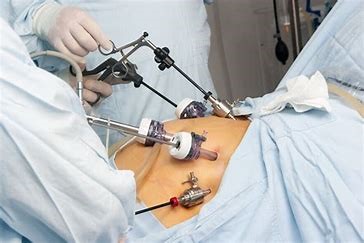Gastric sleeve surgery, also known as sleeve gastrectomy, is a form of bariatric surgery in which a substantial portion of the stomach is surgically removed, resulting in a narrow tube or “sleeve.” This reduction in stomach size serves two primary purposes: it restricts the amount of food a person can consume in one sitting, promoting calorie restriction, and it reduces the production of hunger hormones, aiding in appetite suppression.
The primary goal of this surgical intervention is to assist individuals with clinically significant obesity in effectively losing weight. By altering the anatomy of the stomach, gastric sleeve surgery helps patients achieve significant weight loss and often leads to improvements in obesity-related health conditions such as diabetes, hypertension, and sleep apnea.
Beyond its role in restricting food intake, gastric sleeve surgery also plays a crucial role in hormonal regulation. By reducing the stomach’s capacity to produce hunger hormones, such as ghrelin, the surgery helps individuals avoid intense cravings and persistent hunger pangs that can sabotage weight loss efforts.

Despite its effectiveness and popularity, gastric sleeve surgery remains underutilized, with only a small percentage of eligible individuals undergoing the procedure. In the United States alone, more than 150,000 gastric sleeve surgeries are performed annually, comprising over half of all bariatric procedures. Globally, the number exceeds 380,000 procedures per year. However, this still represents a mere fraction of the individuals who could potentially benefit from this life-changing intervention.
Gastric sleeve surgery is a common procedure for treating obesity and related health issues. It is typically reserved for individuals who have significant obesity-related medical problems or are at high risk of developing them. This surgery can effectively address or even eliminate conditions such as fatty liver disease, breathing problems during sleep, joint pain, high blood pressure, heart disease, high cholesterol, diabetes, and hypertension.
Compared to living with obesity and its associated ailments, undergoing gastric sleeve surgery carries a much lower risk of complications. It is also safer than other common surgeries like hip replacement or gallbladder removal. Most gastric sleeve surgeries are performed using minimally invasive techniques, which means smaller incisions, quicker recovery, and less post-operative pain.
The surgery itself, known as a sleeve gastrectomy, is typically performed using robotic or laparoscopic methods. This means your surgeon operates through small incisions instead of a large one in your abdomen. While most patients benefit from this less invasive approach, some may require open surgery depending on their individual circumstances.
In terms of duration, a sleeve gastrectomy is relatively quick, usually lasting between sixty to ninety minutes. Afterwards, you may need to stay in the hospital for a day or two for observation and to manage any discomfort or temporary side effects like nausea. Your surgeon will provide personalized care to ensure a smooth recovery process.

To ensure proper healing of your stomach in the short term, strict dietary guidelines must be followed. While you may gradually transition to a more typical diet after a few months, making wise food choices will remain essential. Due to the reduced capacity of your stomach, it’s crucial to ensure that the food you consume provides sufficient energy, as you won’t be able to eat as much as before. Additionally, lifelong vitamin supplementation will be necessary, starting shortly after surgery.
Like any surgical procedure, there are potential risks and side effects to be aware of, including bleeding, infection, and blood clots in the legs. General anesthesia can also lead to complications such as breathing difficulties.
Over time, you may encounter challenges in absorbing certain nutrients or experience narrowing of the stomach sleeve (stricture). Some individuals may develop reflux or heartburn post-surgery, particularly if they had pre-existing symptoms. In such cases, a gastric bypass procedure might be considered as an alternative, as it can effectively alleviate these symptoms.
Expanding access to gastric sleeve surgery and raising awareness about its benefits are crucial steps in addressing the global obesity epidemic and improving the overall health and well-being of affected individuals. By providing comprehensive education and support, healthcare professionals can empower more people to consider bariatric surgery as a viable option for achieving long-term weight loss and improving their quality of life.
Sources
- https://www.vanguardngr.com/2024/03/afamefuna-compelling-igbo-apprenticeship-system-movie-hits-netflix/amp/
- https://scholar.google.com/scholar?hl=en&as_sdt=0%2C5&q=historical+transitions+igba+boi&oq=#d=gs_qabs&t=1712921737546&u=%23p%3DejTn6EnXN7gJ
- https://www.researchgate.net/profile/Anayo-Nkamnebe/publication/347209354_Entrepreneurship_Incubation_among_the_Nigerian_Igbos_The_Igba-Boi_Indigenous_Model/links/645ce53d4353ba3b3b5c053b/Entrepreneurship-Incubation-among-the-Nigerian-Igbos-The-Igba-Boi-Indigenous-Model.pdf
- https://my.clevelandclinic.org/health/treatments/22931-gastric-sleeve-surgery
- https://www.hopkinsmedicine.org/health/treatment-tests-and-therapies/gastric-sleeve-surgery




